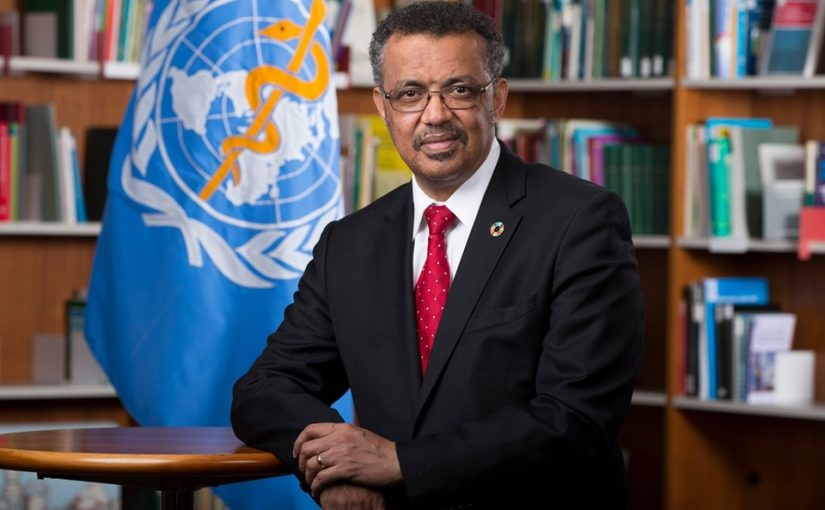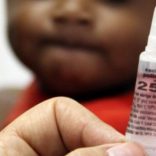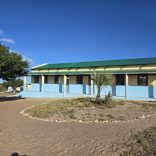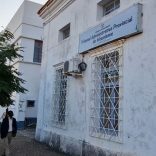Mozambique: Zimbabwe donates 130t of food, seeds and building materials for Cabo Delgado
Mozambique: WHO Director-Genral calls for local medicine production

FILE - Illustrative photo. WHO Director-General Tedros Adhanom Ghebreyesus participated via videoconference, in the international conference on local production of medicines and health products, which began on Wednesday and runs until Thursday, in Maputo. [File photo: World Health Organisation -WHO]
The Director-General of the World Health Organisation (WHO) on Wednesday called for local production of drugs in Mozambique to ensure a rapid response to a possible future viral outbreak on a continent where 90% of medication is imported.
“Expanding local production is therefore essential for strengthening pandemic preparedness and response globally. Outbreaks of mpox, including here in Mozambique, as well as outbreaks of Ebola and Marburg virus disease elsewhere in our continent, are reminders of the urgency of the challenge we face, while ancient diseases like malaria and tuberculosis continue to kill,” said the WHO Director-General, who participated via videoconference, in the international conference on local production of medicines and health products, which began on Wednesday and ends this Thursday, in Maputo, as part of the Mozambique International Health Expo (MIH Expo-24), organised by the National Medicines Regulatory Authority (Anarme).
In his speech, Tedros Ghebreyesus recalled that the organisation he heads has adopted a Pandemic Agreement, an instrument aimed at improving global prevention, preparedness and response to future pandemics, which also includes local production as one of its mechanisms. “The Pandemic Agreement aims to address the weaknesses exposed by the COVID-19 pandemic and the lessons it taught us. One of those lessons is that the concentration of manufacturing in just a handful of countries led to deep inequities in access to vaccines and other health products.” he said.
“The Pandemic Agreement includes an entire article on sustainable and geographically diversified local production, and another article on transfer of technology and know-how for the production of pandemic-related health products,” he added
“Local production is necessary not only for pandemic preparedness, but for the full range of health needs.. And yet, the global pharmaceutical sector remains marked by deep structural imbalances. Most medicines, vaccines, medical devices, and active pharmaceutical ingredients are produced outside of Africa,” he said.
The African continent imports over 90% of its medicines and 99% of its vaccines, which compromises the stability of supply chains and progress toward universal health coverage and the other health-related targets in the Sustainable Development Goals (SDGs), according to data provided by the WHO Director-General.
The WHO has worked on strengthening local production for many years, but that work intensified during the COVID-19 pandemic.. In 2021, WHO launched the mRNA Technology Transfer Programme, which is now sharing technology from its base in South Africa with a network of 15 partner countries globally.
“With the Medicines Patent Pool, WHO has also secured the rights to a platform technology for rapid diagnostic tests for diseases like HIV and malaria, which we will sub-license to manufacturers.,” he said.
The African Union (AU) has set a target of producing 60% of the vaccines needed on the continent by 2040, to promote self-sufficiency in pharmaceuticals and strengthen the African pharmaceutical industry.
The initiative, supported by the WHO and driven by challenges such as the Covid-19 pandemic, aims to ensure access to essential medicines and promote African health autonomy, according to data provided by the official.
In anticipation of the event, the president of Mozambique had said that te country’s government is working with domestic and foreign investors and researchers to ensure local production of medicines and promote self-sufficiency.
MIH Expo-24, according to the promoters, “is a comprehensive platform to present a unified international effort to strengthen health systems against climate-related risks, while promoting initiatives that drive the sector towards net zero environmental impact”.
The event brings together key international stakeholders in the sector, policy makers, professionals and innovators in Maputo to facilitate knowledge exchange, share best practices and showcase cutting-edge innovation in the region.
WHO Director-General’s opening remarks at the Mozambique International Health Expo and Summit
30 July 2025
Your Excellency President Daniel Chapo,
Honourable Minister Ussene Hilario Isse,
Excellencies, Honourable Ministers, dear colleagues and friends,
Bom dia. Good morning from Geneva, and thank you for the opportunity of joining you virtually. I’m sorry I can’t be with you in person.
I congratulate Your Excellency for prioritizing health in your government’s programme, and especially the universal availability of essential medicines.
I congratulate Mozambique for investing in its national regulatory system, reaching maturity level 2 and aiming at maturity level 3.
WHO is proud to have supported you in this process, including through the creation of the national regulatory authority, ANARME.
I also congratulate the National Pharmaceutical Factory, FNM, for producing drugs that meet WHO standards for quality, safety, and efficacy.
At the World Health Assembly in May this year, WHO’s Member States made history by adopting the WHO Pandemic Agreement – a landmark instrument of international law to keep the world safer.
The Pandemic Agreement aims to address the weaknesses exposed by the COVID-19 pandemic and the lessons it taught us.
One of those lessons is that the concentration of manufacturing in just a handful of countries led to deep inequities in access to vaccines and other health products.
Expanding local production is therefore essential for strengthening pandemic preparedness and response globally.
Outbreaks of mpox, including here in Mozambique, as well as outbreaks of Ebola and Marburg virus disease elsewhere in our continent, are reminders of the urgency of the challenge we face, while ancient diseases like malaria and tuberculosis continue to kill.
That’s why the Pandemic Agreement includes an entire article on sustainable and geographically diversified local production, and another article on transfer of technology and know-how for the production of pandemic-related health products.
The Agreement will provide a vital instrument of international law to support enhanced local production.
Of course, local production is necessary not only for pandemic preparedness, but for the full range of health needs.
And yet, the global pharmaceutical sector remains marked by deep structural imbalances.
Most medicines, vaccines, medical devices, and active pharmaceutical ingredients are produced outside of Africa.
Currently, Africa imports over 90% of its medicines and 99% of its vaccines, which compromises the stability of supply chains and progress toward universal health coverage and the other health-related targets in the Sustainable Development Goals.
WHO has worked on strengthening local production for many years, but that work intensified during the COVID-19 pandemic.
In 2021, we launched the mRNA Technology Transfer Programme, which is now sharing technology from its base in South Africa with a network of 15 partner countries globally.
In 2023 we also established the WHO Biomanufacturing Workforce Training Initiative, including a Global Training Hub in the Republic of Korea, which has helped to train over 7000 participants globally.
With the Medicines Patent Pool, WHO has also secured the rights to a platform technology for rapid diagnostic tests for diseases like HIV and malaria, which we will sub-license to manufacturers.
With the launch of the African Vaccine Manufacturing Accelerator, WHO is supporting the African Union to reach its target of producing 60% of the continent’s vaccines by 2040.
And we’re also supporting stronger national and continental institutions including the African Medicines Agency and the Africa CDC.
So although we have made some progress, we still have a lot of work to do. Low and middle-income countries still face significant barriers in access and supply.
This is made even more difficult due to low-quality, untimely data that prevents accurate demand forecasting.
Other major challenges include affordable financing and limited R&D capacity.
Earlier, this year, WHO co-hosted the third World Local Production Forum in Abu Dhabi, which made four key recommendations for actions that governments, industry, associations, and other actors can take to strengthen local production.
First, we must build conducive ecosystems for local production, through technology transfer, R&D, data sharing, regulatory strengthening and more.
Second, we must harness the power of digital technologies, AI and big data to drive the full production value chain, from research to distribution of medicines.
Third, we must make local production green, by using energy-efficient technologies and sustainable procurement of raw materials.
And fourth, we must build public-private partnerships across sectors to increase investment in R&D, manufacturing infrastructure and workforce capacity.
Your Excellency Mr President, Honourable Minister, dear colleagues and friends,
My thanks again to Your Excellency for hosting this important meeting, and for drawing attention to this vital issue.
I’m pleased to note that the Constitution of Mozambique includes the right to health and medical care for all citizens.
We wish all countries were the same.
Indeed, the right to health has been part of WHO’s mandate since our founding in 1948.
The WHO Constitution was the first instrument of international law to affirm that the highest attainable standard of health is a fundamental right of every human.
The right to health means the right to equitable access to the products to protect and promote it.
Local production is about realizing that right.
Thank you all for your dedication and commitment to equitable access, and to a healthier, safer fairer world for all people.
Obrigado. Thank you very much.












Leave a Reply
Be the First to Comment!
You must be logged in to post a comment.
You must be logged in to post a comment.